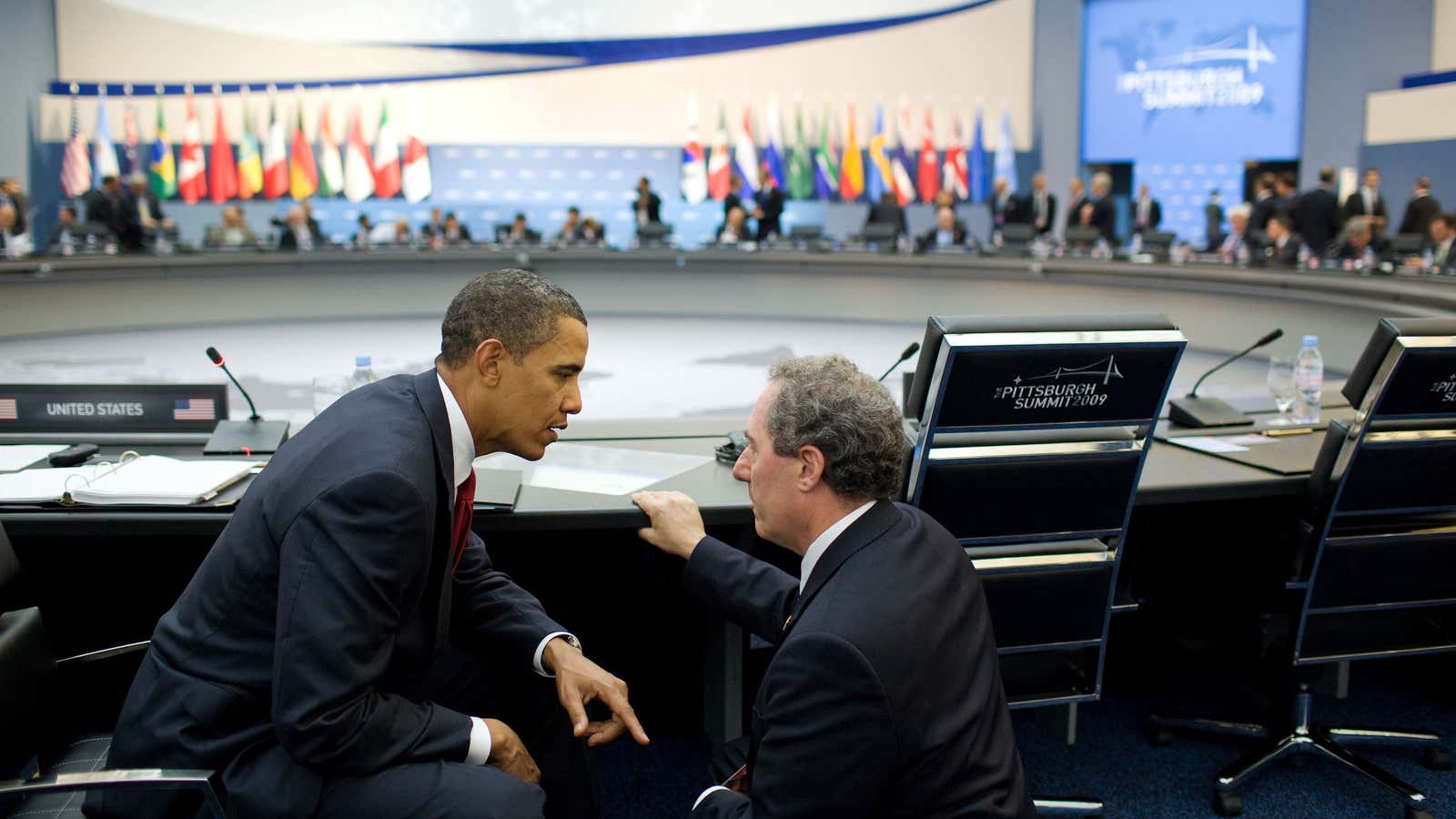Rejected by his own Democratic party, US president Barack Obama’s ambitions to strike a free-trade deal spanning 13 countries across the Pacific rim may have come to an end today.
Obama had a struck an alliance with Republicans, who tend to support free trade, to push through negotiating authority that would guarantee an up-or-down vote on trade deals he signed with other nations. This would have included the Trans-Pacific Partnership (TPP), which the US has been a party to negotiating for some time now.
After narrowly passing the Senate, the request for negotiating authority and a companion bill designed to assist workers in sectors hurt by international competition were brought to the House floor, where each bill needed to pass for both proceed.
Advocates for giving the president broader authority on free-trade pacts were jeered by lawmakers in the normally dull Capitol chambers, and cheers were heard when the legislation was defeated: The assistance bill failed due to opposition from Republicans and Democrats alike, as the negotiating authority was approved by a slim margin.
The House will re-visit the assistance bill next week in an effort to complete the trade agenda. But for now, without the negotiating authority, Obama has little leverage to force an agreement among the 12 other negotiating partners in the trade deal, who know that in the absence of special authority for the president, American lawmakers are liable to pick apart any US concessions before ratifying the deal.
Democrats, including party leaders, are united against granting the negotiating authority, thanks to opposition from several key interest groups, including trade unions and environmental groups that have never backed modern free trade deals. Influential progressives, particularly senator Elizabeth Warren, criticized provisions in the TPP designed to smooth business relations for multinational corporations, including strict intellectual property rules, and legal mechanisms to challenge government decisions.
Republican leaders, and their financial backers in the business community, support the negotiating authority—especially because it would extend into the next presidential term, when a Republican may well be president and able to move forward on trade policy. But the rank-and-file members see trade assistance as a government handout, and were reluctant to hand Obama a legislative victory.
The defeat is a major setback for the president, who made a rare visit to the Capitol this morning to seek votes for the authority to conclude his trade negotiations. The administration has argued that the TPP will boost the US economy, creating more jobs in skilled employment sectors, and would allow the US to set high market standards across a wide swath of the global economy, strengthening the country’s international position, especially vis-a-vis China.
Over the weekend, Obama and his allies will scramble to find a way to convince his party to move forward on trade. This could be his last chance for a legislative victory before the 2016 presidential race engulfs US political activity.
